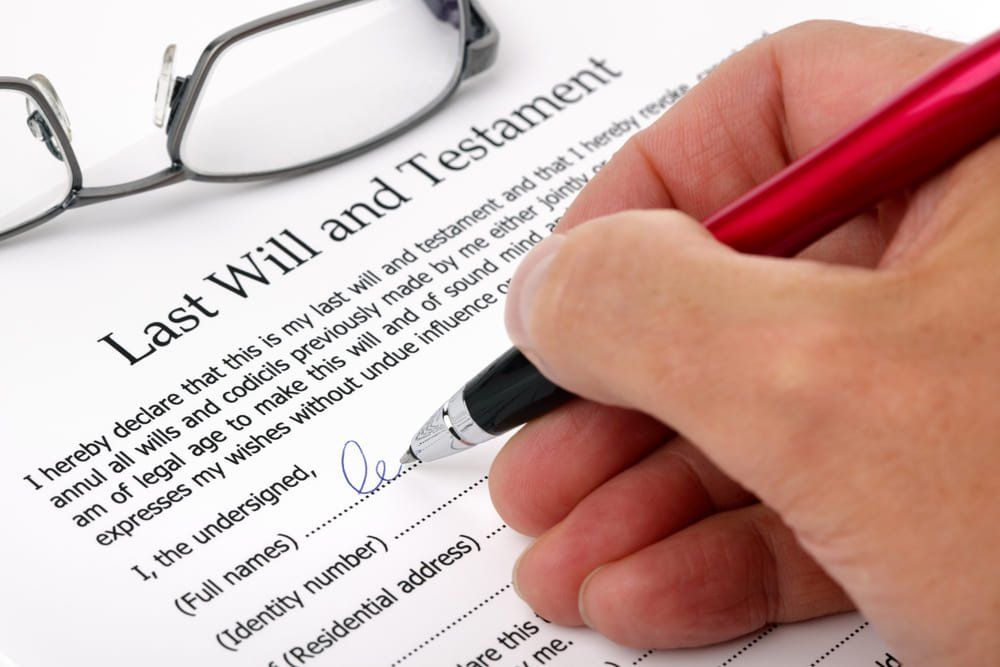News & Updates

15 Feb, 2023
Estate planning entails preparing your affairs for the future, including death and other life events. While older adults might give more thought to estate planning, it is an essential tool at any age. WHY IT’S IMPORTANT With estate planning, individuals and families can protect their interests during incapacity or after death. You can provide for a spouse, children, and dependent family members when you pass away. You can arrange your care and financial affairs should you suffer a severe accident or illness that renders you incapacitated. If you are a parent, you can appoint a guardian to care for and manage the inheritance of your minor children. If you own a business, you can prepare to transfer it to family members, colleagues, or other trusted individuals. You can make arrangements for your long-term care when you can no longer live on your own. You can also make funeral preparations, determine what happens to your body when you pass, and prepay for your funeral, all of which can help lessen the burden on your family members. WHAT IS AN ESTATE? Legacy planning entails passing on your estate. Your estate is everything you own, including: Savings and checking accounts Retirement accounts Investments Life insurance Annuities Houses and other real estate Cars Personal possessions, such as jewelry, furniture, and sentimental items When you die, your estate encompasses all your property upon death. If you sold or gave away property before death, it is no longer part of your estate, and you cannot transfer it upon death. Items you own with another person are also part of your estate. Depending on the type of asset, it might automatically pass to the other owner. For instance, if you own a home with your spouse as tenants by the entirety, it will pass to your spouse upon your death. WHAT IS AN ESTATE PLAN? An estate plan consists of legal documents and arrangements that determine the distribution of your assets when you die or outline your care if you become incapacitated. While a will can be a central component of an estate plan, a solid plan encompasses more than a will. It can also include legal tools that allow assets to pass outside of a will and probate (the process by which a court oversees the distribution of assets in a will). ESTATE PLANNING TOOLS In addition to your will, your estate plan could include the following: Purchasing jointly owned property or adding a joint owner to your property Designating a beneficiary on a pay-on-death bank account, retirement account, or annuity Buying life insurance to benefit your family should you pass away Creating a trust for a child Obtaining long-term care insurance to cover future nursing home or assisted living fees Executing power of attorney documents, naming health care and financial agents Making a living will, providing instructions for care should you become incapacitated Preparing a transfer on death instrument to pass ownership of your property to a beneficiary upon death WHAT IS AN ESTATE PLANNER? As professionals helping people make future arrangements, estate planners are attorneys who focus on end-of-life preparations. Estate planning attorneys assist people with drafting legal documents and understanding laws and taxes that could affect them and the loved ones they will leave behind. When creating estate plans, individuals may need to consult attorneys as well as other experts, including financial planners, accountants, life insurance advisors, bankers, and real estate brokers. WHAT DOES THE FINAL DISTRIBUTION OF ASSETS INVOLVE? The final distribution of assets is a conclusory step in the probate process before the court closes probate. When an estate goes through probate, the personal representative or executor must satisfy all debts, and the court must resolve all disputes before allowing the beneficiaries to receive the assets. At the end of the probate process, ownership of the assets of the estate is transferred to the beneficiaries. DO I NEED A LAWYER FOR ESTATE PLANNING? Although the law does not require that individuals secure legal representation to make estate plans, many find the support and guidance of estate planning attorneys invaluable. An estate planning attorney can help you identify the legal tools and strategies that suit your needs, as well as draft the necessary documents, such as wills, trusts, and powers of attorney. In addition to addressing tax concerns and drafting documents, these attorneys can help you avoid probate. Probate, the process by which the court oversees the distribution of assets in a will, can be expensive and time-consuming for surviving family members. It also opens the door for disgruntled people to challenge the validity of the testamentary document, further complicating asset distribution. An estate planning attorney could help you organize your assets to transfer outside of probate to make the transfers simpler, easier, and less vulnerable to challenges. When you are ready to create an estate plan, contact Jayde Law PLLC.

01 Feb, 2023
An executor (or personal representative) is a person or entity you choose to carry out your last wishes outlined in your will. Your executor should be someone you trust is responsible enough to manage your estate after you pass away. Choosing an executor is a big decision when it comes to estate planning. So, what should you know about an executor? What should you consider before naming an executor? Here are answers to three common questions about executors. Can an Executor Decide Who Gets What? No. In most circumstances, an executor cannot decide who gets what property. Executors are responsible for carrying out the decedent’s wishes as outlined in the will. However, if the decedent did not distribute all their assets in their will, in some circumstances, the executor may be able to decide how to distribute the unassigned property. Can an Executor of a Will Be a Beneficiary? Yes. An executor can also be a beneficiary of the will. It is common for people to have their surviving spouse or children act as the executor of their estate. This choice can be cost-effective if you have a small or simple estate. Another benefit of having a family member act as the executor of your estate is they are familiar with your wishes. They know you, and they understand how you want your assets divided. If you forget to state where property goes in your will, an executor that knows you well is more likely to give those assets to the correct beneficiaries. How Long Does the Executor Have to Pay the Beneficiaries? The short answer is: It depends. The executor should work diligently to get each beneficiary paid as soon as possible. While the executor is responsible for ensuring beneficiaries receive the money or property they were left in the will, the probate process may delay beneficiaries from receiving a payout. Depending on the size of the estate and the debts and taxes the estate owes, it may take anywhere from six months to more than one year for a beneficiary to receive an inheritance. The probate process varies depending on the state, but the typical process goes like this: Submit the Will for Probate — Part of the executor’s responsibility to the estate is to file the will with the probate court. Filing the will begins the probate process. Once completed, the beneficiaries are one step closer to receiving their inheritance. The time executors have to file a will with the probate court varies by state. File an Inventory — An inventory of estate assets is required. As part of an inventory, the executor determines the total value of all estate property, money, and other assets. A completed inventory can then be used by the executor to determine whether federal or state taxes apply, or whether assets will be used to settle debts. Pay Taxes and Debts — Before the executor can distribute any assets to beneficiaries, estate debts and taxes must be paid. The executor is responsible for ensuring these payments are made. Creating a complete estate plan can be overwhelming. With the help of an experienced estate planning attorney, you can ease some of the anxieties you may be facing in thinking about estate planning. If you are ready to start the estate planning process give Jayde Law PLLC a call..

18 Jan, 2023
A power of attorney is a legal agreement that gives a person (“attorney-in-fact” or “agent”) the ability to act on behalf of another person (“principal”). A common question asked about a power of attorney is under what circumstances one be overridden. A power of attorney can be overridden. However, the “who” and “how” depends on whether the principal is of sound mind. First and foremost, the principal can override a power of attorney at any time as long as they are of sound mind. The term “sound mind” refers to the state of mind and memory a person has at the time in question. So, as principal, you could override your power of attorney if you have sufficient mental capacity to understand what you are doing. WHAT IS REVOCATION? The act of overriding a power of attorney is called revocation. Every state’s laws specify how revocation can occur, but typically, it is required to be in writing and must clearly express the principal’s intention to revoke a specific power of attorney. As the principal, you can revoke a power of attorney in many different ways, such as: Executing a new power of attorney, which states that you are revoking a prior power of attorney; Putting provisions in a power of attorney that state it will terminate or become ineffective under certain circumstances, such as your incapacity; Sending a written notice of the revocation to the agent and any monitor, secondary agent, successor agent, and any other relevant parties; or A power of attorney can also naturally terminate upon the conclusion of a specific event, such as in a situation where the principal had entered into a power of attorney solely to close a particular real estate transaction. OVERRIDING A POWER OF ATTORNEY THROUGH A COURT A second way a power of attorney can be overridden is through court intervention. For example, if you, as an agent, are no longer of sound mind, a court can remove you for acting improperly or acting in a manner that abuses your responsibilities as set forth in the power of attorney. If family members or friends are concerned about this situation, they can seek to have you removed as well. They would have to file a formal request with the applicable court to remove an agent and replace them with a new one. This request is made pursuant to the applicable state’s law governing powers of attorney. A third option is when a concerned party seeks guardianship or conservatorship of the principal through the local court system. If a guardian or conservator is subsequently appointed, they can then request the termination of a particular agent’s authority. CAN YOUR AGENT REFUSE TO FULFILL THEIR DUTIES? An agent can in fact decline to fulfill their duties. When choosing an agent under a power of attorney, it is best to have discussed the responsibilities with of the role before appointing them so that you can do your best to avoid such a situation. Even if your agent had agreed to act in this role, they can still resign after they have been appointed. This is one reason it may be a good idea to consider naming a successor agent. SEEK OUT A LOCAL PROFESSIONAL If you have questions about revoking a power of attorney or creating a new power of attorney that overrides a prior one, it is best to speak with a professional in your area. Each state’s laws are quite specific regarding the power of attorney process. A professional can help you understand how to comply with applicable requirements.

15 Feb, 2023
Estate planning entails preparing your affairs for the future, including death and other life events. While older adults might give more thought to estate planning, it is an essential tool at any age. WHY IT’S IMPORTANT With estate planning, individuals and families can protect their interests during incapacity or after death. You can provide for a spouse, children, and dependent family members when you pass away. You can arrange your care and financial affairs should you suffer a severe accident or illness that renders you incapacitated. If you are a parent, you can appoint a guardian to care for and manage the inheritance of your minor children. If you own a business, you can prepare to transfer it to family members, colleagues, or other trusted individuals. You can make arrangements for your long-term care when you can no longer live on your own. You can also make funeral preparations, determine what happens to your body when you pass, and prepay for your funeral, all of which can help lessen the burden on your family members. WHAT IS AN ESTATE? Legacy planning entails passing on your estate. Your estate is everything you own, including: Savings and checking accounts Retirement accounts Investments Life insurance Annuities Houses and other real estate Cars Personal possessions, such as jewelry, furniture, and sentimental items When you die, your estate encompasses all your property upon death. If you sold or gave away property before death, it is no longer part of your estate, and you cannot transfer it upon death. Items you own with another person are also part of your estate. Depending on the type of asset, it might automatically pass to the other owner. For instance, if you own a home with your spouse as tenants by the entirety, it will pass to your spouse upon your death. WHAT IS AN ESTATE PLAN? An estate plan consists of legal documents and arrangements that determine the distribution of your assets when you die or outline your care if you become incapacitated. While a will can be a central component of an estate plan, a solid plan encompasses more than a will. It can also include legal tools that allow assets to pass outside of a will and probate (the process by which a court oversees the distribution of assets in a will). ESTATE PLANNING TOOLS In addition to your will, your estate plan could include the following: Purchasing jointly owned property or adding a joint owner to your property Designating a beneficiary on a pay-on-death bank account, retirement account, or annuity Buying life insurance to benefit your family should you pass away Creating a trust for a child Obtaining long-term care insurance to cover future nursing home or assisted living fees Executing power of attorney documents, naming health care and financial agents Making a living will, providing instructions for care should you become incapacitated Preparing a transfer on death instrument to pass ownership of your property to a beneficiary upon death WHAT IS AN ESTATE PLANNER? As professionals helping people make future arrangements, estate planners are attorneys who focus on end-of-life preparations. Estate planning attorneys assist people with drafting legal documents and understanding laws and taxes that could affect them and the loved ones they will leave behind. When creating estate plans, individuals may need to consult attorneys as well as other experts, including financial planners, accountants, life insurance advisors, bankers, and real estate brokers. WHAT DOES THE FINAL DISTRIBUTION OF ASSETS INVOLVE? The final distribution of assets is a conclusory step in the probate process before the court closes probate. When an estate goes through probate, the personal representative or executor must satisfy all debts, and the court must resolve all disputes before allowing the beneficiaries to receive the assets. At the end of the probate process, ownership of the assets of the estate is transferred to the beneficiaries. DO I NEED A LAWYER FOR ESTATE PLANNING? Although the law does not require that individuals secure legal representation to make estate plans, many find the support and guidance of estate planning attorneys invaluable. An estate planning attorney can help you identify the legal tools and strategies that suit your needs, as well as draft the necessary documents, such as wills, trusts, and powers of attorney. In addition to addressing tax concerns and drafting documents, these attorneys can help you avoid probate. Probate, the process by which the court oversees the distribution of assets in a will, can be expensive and time-consuming for surviving family members. It also opens the door for disgruntled people to challenge the validity of the testamentary document, further complicating asset distribution. An estate planning attorney could help you organize your assets to transfer outside of probate to make the transfers simpler, easier, and less vulnerable to challenges. When you are ready to create an estate plan, contact Jayde Law PLLC.

01 Feb, 2023
An executor (or personal representative) is a person or entity you choose to carry out your last wishes outlined in your will. Your executor should be someone you trust is responsible enough to manage your estate after you pass away. Choosing an executor is a big decision when it comes to estate planning. So, what should you know about an executor? What should you consider before naming an executor? Here are answers to three common questions about executors. Can an Executor Decide Who Gets What? No. In most circumstances, an executor cannot decide who gets what property. Executors are responsible for carrying out the decedent’s wishes as outlined in the will. However, if the decedent did not distribute all their assets in their will, in some circumstances, the executor may be able to decide how to distribute the unassigned property. Can an Executor of a Will Be a Beneficiary? Yes. An executor can also be a beneficiary of the will. It is common for people to have their surviving spouse or children act as the executor of their estate. This choice can be cost-effective if you have a small or simple estate. Another benefit of having a family member act as the executor of your estate is they are familiar with your wishes. They know you, and they understand how you want your assets divided. If you forget to state where property goes in your will, an executor that knows you well is more likely to give those assets to the correct beneficiaries. How Long Does the Executor Have to Pay the Beneficiaries? The short answer is: It depends. The executor should work diligently to get each beneficiary paid as soon as possible. While the executor is responsible for ensuring beneficiaries receive the money or property they were left in the will, the probate process may delay beneficiaries from receiving a payout. Depending on the size of the estate and the debts and taxes the estate owes, it may take anywhere from six months to more than one year for a beneficiary to receive an inheritance. The probate process varies depending on the state, but the typical process goes like this: Submit the Will for Probate — Part of the executor’s responsibility to the estate is to file the will with the probate court. Filing the will begins the probate process. Once completed, the beneficiaries are one step closer to receiving their inheritance. The time executors have to file a will with the probate court varies by state. File an Inventory — An inventory of estate assets is required. As part of an inventory, the executor determines the total value of all estate property, money, and other assets. A completed inventory can then be used by the executor to determine whether federal or state taxes apply, or whether assets will be used to settle debts. Pay Taxes and Debts — Before the executor can distribute any assets to beneficiaries, estate debts and taxes must be paid. The executor is responsible for ensuring these payments are made. Creating a complete estate plan can be overwhelming. With the help of an experienced estate planning attorney, you can ease some of the anxieties you may be facing in thinking about estate planning. If you are ready to start the estate planning process give Jayde Law PLLC a call..

18 Jan, 2023
A power of attorney is a legal agreement that gives a person (“attorney-in-fact” or “agent”) the ability to act on behalf of another person (“principal”). A common question asked about a power of attorney is under what circumstances one be overridden. A power of attorney can be overridden. However, the “who” and “how” depends on whether the principal is of sound mind. First and foremost, the principal can override a power of attorney at any time as long as they are of sound mind. The term “sound mind” refers to the state of mind and memory a person has at the time in question. So, as principal, you could override your power of attorney if you have sufficient mental capacity to understand what you are doing. WHAT IS REVOCATION? The act of overriding a power of attorney is called revocation. Every state’s laws specify how revocation can occur, but typically, it is required to be in writing and must clearly express the principal’s intention to revoke a specific power of attorney. As the principal, you can revoke a power of attorney in many different ways, such as: Executing a new power of attorney, which states that you are revoking a prior power of attorney; Putting provisions in a power of attorney that state it will terminate or become ineffective under certain circumstances, such as your incapacity; Sending a written notice of the revocation to the agent and any monitor, secondary agent, successor agent, and any other relevant parties; or A power of attorney can also naturally terminate upon the conclusion of a specific event, such as in a situation where the principal had entered into a power of attorney solely to close a particular real estate transaction. OVERRIDING A POWER OF ATTORNEY THROUGH A COURT A second way a power of attorney can be overridden is through court intervention. For example, if you, as an agent, are no longer of sound mind, a court can remove you for acting improperly or acting in a manner that abuses your responsibilities as set forth in the power of attorney. If family members or friends are concerned about this situation, they can seek to have you removed as well. They would have to file a formal request with the applicable court to remove an agent and replace them with a new one. This request is made pursuant to the applicable state’s law governing powers of attorney. A third option is when a concerned party seeks guardianship or conservatorship of the principal through the local court system. If a guardian or conservator is subsequently appointed, they can then request the termination of a particular agent’s authority. CAN YOUR AGENT REFUSE TO FULFILL THEIR DUTIES? An agent can in fact decline to fulfill their duties. When choosing an agent under a power of attorney, it is best to have discussed the responsibilities with of the role before appointing them so that you can do your best to avoid such a situation. Even if your agent had agreed to act in this role, they can still resign after they have been appointed. This is one reason it may be a good idea to consider naming a successor agent. SEEK OUT A LOCAL PROFESSIONAL If you have questions about revoking a power of attorney or creating a new power of attorney that overrides a prior one, it is best to speak with a professional in your area. Each state’s laws are quite specific regarding the power of attorney process. A professional can help you understand how to comply with applicable requirements.
Disclaimer
Attorney Advertisement. The information contained on this website is not, nor is it intended to constitute, legal advise. The transmission and receipt of information contained on this website, in whole or in part, does not constitute or create an attorney-client relationship between Jayde Law PLLC and any recipient. You should not send us any confidential information in response to this website. Such responses will not create an attorney-client relationship, and any information disclosed will not be privileged or confidential unless we have established an attorney-client relationship and executed a written engagement agreement.






